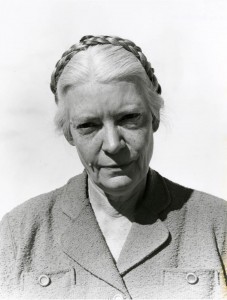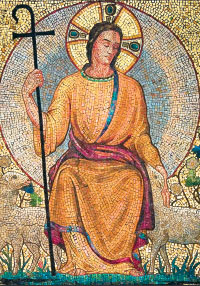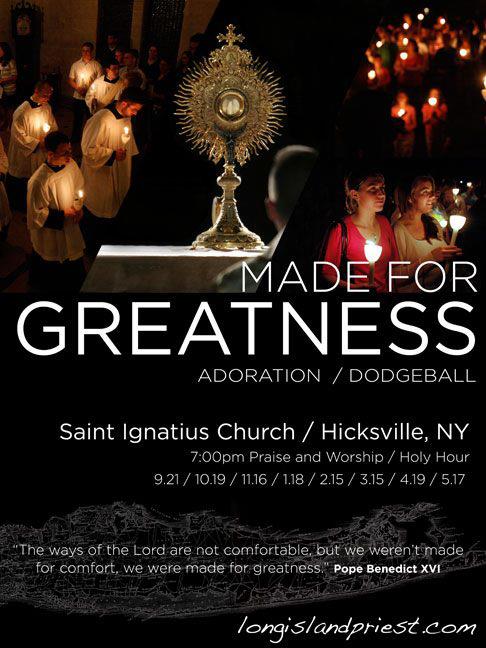A lot has been happening the last few days in Baltimore. Unfortunately I wasn’t able to attend the bishops and bloggers meet up – duty calls here at the parish! If you want a play by play, follow the hashtag #USCCB12 on twitter. Almost as good as being there in person!
The Bishops today approved a very exciting new document on preaching. Preaching is where the rubber of the New Evangelization hits the road. As a young priest, preaching is among the most challenging and yet fruitful parts of my ministry. I struggle every week in preparing my homily, but I am always amazed by the work of the Holy Spirit at the end of each Sunday. Full Text to come when the conference releases it. CNS had this to say:
The document, “Preaching the Mystery of Faith: The Sunday Homily,” encourages preachers to connect the Sunday homily with people’s daily lives.
The vote was 227-11, with four abstentions. Approval required two-thirds of the membership of the U.S. Conference of Catholic Bishops, or 182 votes…
During discussion on the document Nov. 13, the bishops accepted a plea from Bishop Ricardo Ramirez of Las Cruces, N.M., to include his amendment urging Catholics to make an extra effort to listen to the homilies of foreign-born priests for whom English or Spanish is not their first language.Those priests’ speech “may have a heavy accent that the congregation cannot understand,” Bishop Ramirez said. “We have many foreign priests coming to work in our dioceses,” he added.
“Even though it takes an extra effort to understand what they are saying, they have wisdom. They are inspired by the Holy Spirit. … The people have to make an extra effort to understand their wisdom.”
“Preaching the Mystery of Faith” also required a suspension of the rules governing consideration of proposed documents issued in the name of the USCCB, as bishops did not receive it at least 30 days prior to debate…
“The homily is intended to establish a ‘dialogue’ between the sacred biblical text and the Christian life of the hearer,” the document says.
“Preachers should be aware, in an appropriate way, of what their people are watching on television, what kind of music they are listening to, which websites they find appealing, and which films they find compelling,” it adds. “References to the most popular cultural expressions — which at times can be surprisingly replete with religious motifs — can be an effective way to engage the interest of those on the edge of faith.”
The intent to write a new document first surfaced six years ago as the silver anniversary neared of the U.S. bishops’ last preaching document, “Fulfilled in Your Hearing.” …
“Many Catholics, for a variety of reasons, seem either indifferent to or disaffected with the church and her teaching. We know that the general social context in the United States has a strong emphasis on the individual and individual choice, which often eclipses the sense of community or of the common good that is essential to Christian life,” the document says. “Sadly, too, we must confess that the sexual abuse crisis has wounded the church, and this scandal has led some Catholics to lose heart and leave the church.”
It adds, “The homilist of today must realize that he is addressing a congregation that is more culturally diverse than previously, one that is profoundly affected by the surrounding secular context and, in many instances, inadequately catechized.”
“Virtually every homily preached during the liturgy should make some connection between the Scriptures just heard and the Eucharist about to be celebrated,” it says.
Before preaching, “the homilist may need to wrestle for a while with the challenging aspects of the biblical Word, searching for ways it could connect to ordinary experience and how it might be proclaimed to the congregation the homilist serves,” it says.
“Then comes the process of drafting the homily in a thoughtful manner, finding the right words, moving examples, and apt metaphors that will bring home to the listener the beauty and truth of the Scripture — and then reviewing and revising the text of the homily until it is ready,” it continues. “Good homilists often practice their homily ahead of time, hearing how it sounds out loud and seeking to preach it with passion and strength.”
“Preaching the Mystery of Faith” says: “The ultimate goal of proclaiming the Gospel is to lead people into a loving and intimate relationship with the Lord, a relationship that forms the character of their persons and guides them in living out their faith. … An effective homily would show the faithful just how much the Son of God loved them in taking our human flesh upon himself.”
Another topic that has been a theme of these days in Baltimore was that of the Sacrament of Penance. Cardinal Dolan spoke so beautifully on the role of penance in the New Evangelization.
I remember during the celebration of the 50th International Eucharistic Congress in Ireland last June, when Cardinal Marc Ouellet, the Papal Legate, expressed this so forcefully as he spoke on behalf of the Holy Father at the penitential shrine of St. Patrick’s Purgatory: “I come here with the specific intention of seeking forgiveness, from God and from the victims, for the grave sin of sexual abuse of children by clerics. . . In the name of the Church, I apologize once again to the victims, some of which I have met here in Lough Derg.” And so it turns to us, my brothers. How will we make the Year of Faith a time to renew the Sacrament of Penance, in our own loves and in the lives of our beloved people whom we serve? Once again, we will later this week approach the Sacrament of Penance.
And we’ll have the opportunity during this meeting to approve a simple pastoral invitation to all our faithful to join us in renewing our appreciation for and use of the Sacrament. We will “Keep the Light On”during the upcoming Advent Season!
The work of our Conference during the coming year includes reflections on re-embracing Friday as a particular day of penance, including the possible re-institution of abstinence on all Fridays of the year, not just during Lent. Our pastoral plan offers numerous resources for catechesis on the Sacrament of Penance, and the manifold graces that come to us from the frequent use of confession. Next June we will gather in a special assembly as brother bishops to pray and reflect on the mission entrusted to us by the Church, including our witness to personal conversion in Jesus Christ, and so to the New Evangelization.
We work at giving our people good examples of humble, repentant pastors, aware of our own personal and corporate sins, constantly responding to the call of Jesus to interior conversion. Remember the Curé of Ars? When a concerned group of his worried supporters came to him with a stinging protest letter from a number of parishioners, demanding the bishop to remove John Vianney as their curé, claiming he was a sinner, ignorant, and awkward, St. John Vianney took the letter, read it carefully … and signed the petition!
The Conference today approved a Statement calling all Catholics in these states back to the great Sacrament of Penance. During the monday of Holy Week the Diocese of Rockville Centre joins with the Archdiocese of New York and the Diocese of Brooklyn in making sure that a confessor is available through out the entire day in ever parish. From Orange County to Montauk point. that day for the last few years now has been one of incredible grace. If we make the Sacrament of Penance more available to our people, they will come. One of my firsts posts here at Patheos was on my experiences as a confessor – check it out here.
 This afternoon, in an unprecedented moment, through a unanimous voice vote the cause of the USCCB gave its support to the furthering of the cause of the Servant of God Dorothy Day. The vote occurred after a moving number of interventions by the bishops – one of which was by my own bishop – Bishop William Murphy. Bishop Murphy rose in support of Day’s cause saying that she was a great help to him as a young priest. It was quite moving to see so many bishops speak in support of her cause.
This afternoon, in an unprecedented moment, through a unanimous voice vote the cause of the USCCB gave its support to the furthering of the cause of the Servant of God Dorothy Day. The vote occurred after a moving number of interventions by the bishops – one of which was by my own bishop – Bishop William Murphy. Bishop Murphy rose in support of Day’s cause saying that she was a great help to him as a young priest. It was quite moving to see so many bishops speak in support of her cause.











